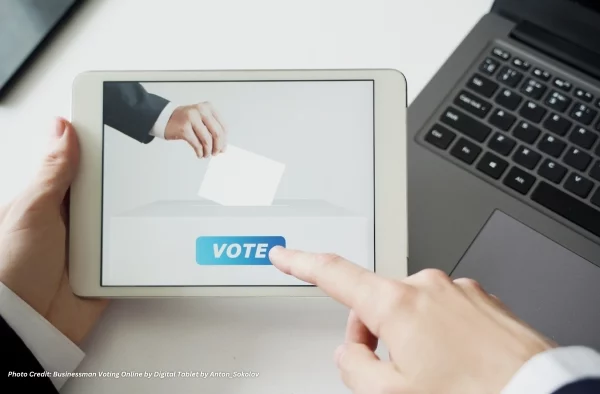Voting rights shift impacts business owners
Share

In 2020, the Victorian Labour government decided to make changes to how businesses and property owners register to vote at local council elections.
For previous elections, the rules were simple: if you lived within a council boundary or were a ratepayer within the municipality, you were automatically enrolled to vote and received a ballot paper ahead of the election.
For reasons best known to themselves, the then Andrews government introduced the ironically described ‘Local Government Governance and Integrity Act’, wiping hundreds of thousands of ratepaying non-resident business and property owners from the electoral roll.
From here forward, if you own a business or a property and want to vote at the council elections, then you will need to proactively ensure that you are registered to vote by contacting your local council directly.
What wiping hundreds of thousands from the electoral roll has to do with ‘integrity’ at a local government level is a mystery; ‘integrity’ it could be said is the last word that a Victorian government that has been mired in corruption for years should ever use.
Not content with booting businesses and property owners off the roll, the Victorian government (in the stealth of night) has now passed additional legislation to bring forward the deadline for voter registration by 3 weeks to August 2007.”
Let’s call this what it is. This is an audacious attempt at ‘voter manipulation’ by the Victorian government, who seem intent to remove as many of those they see as less likely to vote for their candidate as possible from the roll. This change will greatly minimise the number of business and property investors who will now be eligible to vote at council elections.
At a local government level, Victoria now has two electoral rolls: one coordinated and run by the Victorian Electoral Commission, and the second a ‘hodgepodge’ of differing rules overseen by local councils and shires.
What a mess it has become, one of utter confusion with only a handful of councils seemingly in control of their rolls.
From the research that we have conducted at Small Business Australia, we estimate that only 10% of eligible non-resident ratepaying businesses and property owners are currently registered to vote, leaving hundreds of thousands without a say in the communities they are heavily invested in.
What is clear in our engagement with councils and the Victorian government is that they have no intention to fix this mess by ensuring that all ratepayers be issued with a ballot, leaving it up to businesses and property owners to take action to protect their vote.
If it remains as it is, councils will have free reign, with little or no threat at the ballot box, to implement anti-business practices that will bring nothing but pain to local communities and small business families.
This is why we are urging all property and business owners to ensure that they are registered to vote with their local council, and they can find details on how to do this by heading to www.councilvoting.com.au.
Bill Lang is a distinguished business educator, coach, and advisor renowned for his expertise in performance improvement and strategic execution. With over 30 years of experience across diverse industries and countries, Bill’s career began with top-tier consulting firms and evolved into successful entrepreneurial ventures, including a notable $120 million global alliance with AT&T and British Telecom. Currently, he focuses on coaching leaders in healthcare, education, and artificial intelligence while advocating for the vital role of small businesses through Small Business Australia.











Today’s Pick
11th Annual Aus Goverment Data Summit
April 1, 2025
7th Annual NZ Government Data Summit
May 7, 2025
3rd Public Sector Comms Week
May 14, 2025
Subscribe
We send emails,
but we do not spam
Join our mailing list to be on the front lines of healthcare , get exclusive content, and promos.
AI appointment Australia Australian boost boosts business businesses covid-19 cyber cyber attack cybersecurity cyber security data data breach data management defence Digital employment enhance enhances fraud funding governance government grants infrastructure Innovation Lockdown management new zealand NSW NZ online privacy public Public Sector queensland renewable energy scams security Social Media Technology telecommunications victoria
-

Understanding and building your digital strategy
Digital Government, Opinion
-

Featured Leader: Jamie Morse on multi-channel strategies for communication
Communications, Featured Leader
-

Featured Leader: Tegan Tembe of NSW Treasury on creating solid planning strategies and processes
Featured Leader
-

Wirraka Maya Health Service improves patient care with My Health Record
Learning
Show More-

Effects of ineffective communication in the workplace
Communications, Personal Development
-

7 ways you can enhance your personal development skills
News, Personal Development
-

5 advantages of working in the public sector
News, Personal Development, Professional Development
-

7 causes of communication issues in the workplace
Communications, News, Personal Development
Show MoreLast Viewed